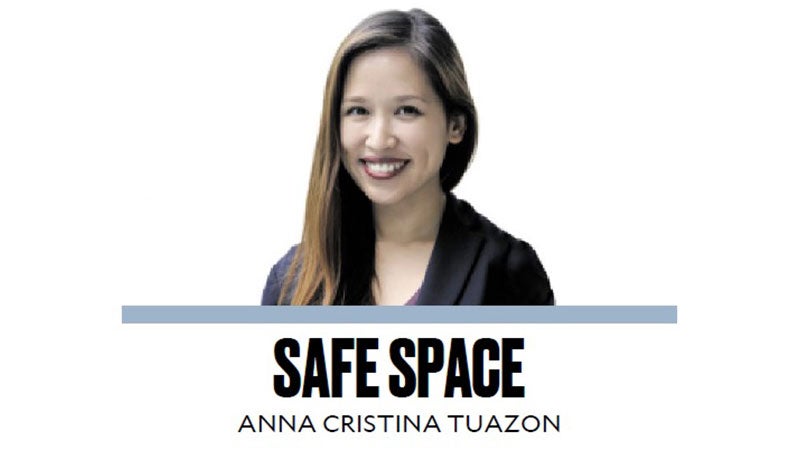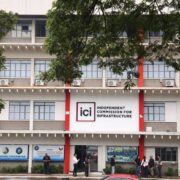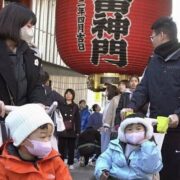Peace and power

The Christian sect Iglesia ni Cristo (INC) held its “National Rally for Peace” on Monday, drawing almost two million of its members in various cities, with the majority of them showing up at Quirino Grandstand in Manila.
There is a predicament of how this rally is supposed to be viewed. According to INC spokesperson Edwil Zabala, the rally is not a political power play but a “very practical” and “moral” call to government officials. Their call? To express support for the position of President Marcos opposing the impeachment of Vice President Duterte. “Let’s forgive each other and be united so that we can achieve peace,” Zabala said to reporters. Forgive who exactly?
Even as they deny that this is a political event, one cannot ignore that this is, nevertheless, a politically powerful spectacle. It is attended by more than a dozen politicians, most of whom are running in the upcoming elections. It is also attended by pro-Duterte senators such as Senators Bato dela Rosa, Bong Go, and Robinhood Padilla. Their mass gathering is a stark visual reminder to political aspirants that this is a voting sector worth wooing—and definitely not worth the risk of antagonizing.
In which other religious sect do we see politicians clamor to put up big billboards and newspaper ads to greet a spiritual leader on his birthday, for example? The biggest beneficiary of this display seems to be the Vice President, who, in her own video, piggybacked on the rally’s message and has now publicly stated to consider running in the 2025 presidential election.
I do wonder what element of this event is considered to be not political. If it is to express support to the President for opposing impeachment, isn’t that a political goal? If it is to encourage forgiveness toward the Vice President, and by extension not spending more energy on exacting accountability for her transgressions, isn’t that a political desire?
“A prayer rally for peace and unity, I believe, is non-debatable. Who wouldn’t want that?” remarked Senate President Francis Escudero. The title of the gathering alone is seen as enough of a shield to protect them from political scrutiny. And anyone who questions the intent and impact of the rally beyond its explicit label is considered malicious. But, as fellow columnist Inez Ponce de Leon said, whose peace are they praying for? (see “Whose peace?” Question the Box, 1/15/25)
An effective practice of collective action, such as a rally, requires a specific goal or aim. When the aim of an event is vague or ambiguous, it can be interpreted in many ways. It can be infiltrated by bad actors and used for their own gain. Measuring the success of such an event can also be murky since we don’t know exactly what we’re supposed to achieve. This is why we laugh at the trope of a beauty pageant contestant who says that her advocacy is world peace. We don’t laugh because we’re against world peace. We laugh because it’s too generic, too vague, and lacking in direction.
Calling for peace, unity, and forgiveness can call to mind very different collective actions. Personally, I find that following the rule of law and allowing for due process when violations occur preserve the peace as citizens can feel secure that laws are being upheld, and that justice is served. Unity can also be achieved, not by ensuring that all political parties agree with each other all the time, but by identifying shared political interests that ideally benefit all Filipinos, like providing access to quality health and education.
Forgiveness is trickier. Forgiveness at the political level has justice as a prerequisite, with admission of guilt a bare minimum. Without justice and a credible plan for repair and healing, demanding forgiveness only benefits the powerful.
It seems, at least with their messaging, that to the INC leadership, achieving peace and unity simply means that the Marcos and Duterte factions should get along. Proceeding with the VP’s impeachment (with three complaints already filed) means disrupting the peace.
There are some logical errors here. First, they contend that impeachment and other forms of exacting accountability from the VP disrupt the peace because it can take away energy and focus on other more pressing national concerns such as the rising cost of basic goods. We can do both. It is not—and should not—be the President’s job to exert any influence on any impeachment proceedings. The President and his Cabinet can commit to focusing on repairing the economy and strengthening social support for the Filipino family.
Second, they are confusing passivity for peace. Peace is not inaction. At its most literal, peace opposes violence and conflict. When conflict arises, peace does not advocate ignoring it; it advocates prioritizing its resolution. At the political level, resolution means following due process, including impeachment as one option.
Peace can be a power tool, whether we admit it or not. Let us at least make sure we are intentional with how we wield it.
—————-
aatuazon@up.edu.ph


















